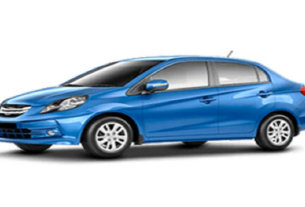Last Updated on 05/01/2024 by Pardeep Garg
Rahul owned a fleet of buses that carried passengers from one stop to another. It was his way to earn bread and butter. But on a sad day, one of his buses met with an accident. There were some passengers injured, and a few died along with the driver. The bus also got damaged.
Rahul had to pay everyone some compensation and provide financial support to the dependents of the dead driver. It was the amount of loss he produced from his pocket and incurred a huge cost of repairing the bus. If Rahul had ever purchased Comprehensive Commercial Vehicle Insurance/ passenger carrying vehicle insurance, the insurance company would have supported him financially for this mishap.
What is Commercial Vehicle Insurance?
Commercial Vehicle Insurance is a type of motor insurance policy to protect the vehicles you utilize for your business cause. It will include vans, auto-rickshaws, cabs, school buses, trucks, trailers, and passenger or goods carrying vehicles.
Often, large business organizations or corporations buy this type of motor vehicle insurance. Depending on the usage of the vehicle you own, you can decide to buy the commercial vehicle insurance policy.
YOU MAY LIKE: Best two-wheeler insurance companies in India
What is covered in a Commercial Vehicle Insurance Policy?
Commercial Vehicle Insurance Policy will cover you if a financial loss arises due to:
- Accidents that involve the commercial vehicle you own.
- Theft, that is, loss or damage to a commercial vehicle that helps you earn money.
- The fire that damages your vehicle.
- Natural disasters like a flood or heavy rainfall that lead to damage to your vehicle.
- Damages caused by towing of the vehicle.
- The third-party liability in case your vehicle causes any loss to the third party in an accident.
The Commercial Vehicle Insurance Policy will also pay for losses incurred in the event of the driver’s death when the vehicle meets an accident.
What is not covered in a Commercial Vehicle Insurance Policy?
There are certain conditions in which the insurance company will not cover your loss. They are:
- If you have a stand-alone third party policy, then damages to your vehicle are not covered. For this cover, you need to buy a comprehensive plan.
- The damages caused in an accident are not covered if the driver/ owner-driver is found to be driving under the influence of alcohol or any other drug.
- If the driver/ owner-driver does not have valid driving insurance and meets with an accident, then the damages to the vehicle are not covered.
- Suppose the fault of an accident is determined as the policy holder’s contributory negligence (Such as transporting goods to an area where a political riot is going on). In that case, the damages are not covered by the insurance company.
What are the types of Commercial Vehicle Insurance Policy?
Different types of Commercial Vehicle Insurance Policy that you can buy include:
1. Comprehensive Commercial Vehicle Insurance Policy
It is the type of policy covering the losses or damages to your vehicle caused due to accident, theft, natural disaster, fire, etc. You also get loss protection for third-party bodily injury, third-party vehicle, and property damage.
2. Third-Party Legal Liability Policy
The third-party policy only covers the damages to the third party caused by your vehicle. Under this policy alone, your vehicle stands unprotected.
You can buy any of the commonly available covers under like:
- Passenger Carrying Vehicle Insurance.
- Goods Carrying Vehicle Insurance.
- Miscellaneous Insurance.
Things to keep in mind when buying a Commercial Vehicle Insurance Policy.
Here are a few things you must keep in mind when buying a Commercial Vehicle Insurance Policy:
1. Type of Cover you want.
Decide beforehand which type of commercial vehicle insurance you are looking for. You are the best judge to identify whether a comprehensive package policy or Third-party stand-alone cover suffice? A third-Party Liability policy is a mandatory cover under the Motor Vehicle Act. Hence, that’s the bare minimum requirement to drive legally on the roads.
2. No Claim-Bonus.
If you have earned a no-claim bonus for a claim-free year, that can be recovered in the annual premium during renewal. The NCB increases every year and can range between 20% to 50%. So, do not forget to check your old policy to get some benefits on the premium amount.
3. What are the add-on covers you want for your vehicle?
You can buy different add-ons under the Commercial Vehicle Insurance to expand the scope of protection. Such as, consumable cover, engine and gear-box protection, roadside assistance, loss of revenue, additional towing expenses, and EMI protection cover.
Find out from insurance companies what these covers are all about and the respective premium amount before buying the policy. It is advisable to choose the add-on that is essential to avoid overpaying for the insurance policy.
4. Compare multiple insurance providers before purchasing the policy.
It is essential that you get the best deal available in the market. To save money on the insurance policy, you can get quotes from multiple commercial vehicle insurance providers online, just by providing your basic details like vehicle registration number, contact number, etc. Then compare the premium amounts, coverages, exclusions, claim settlement ratio, ratings, cashless garages, etc, and finalize the insurance company.
5. Personal Accident Cover
If you do not have a personal accident cover, you must buy one because it is also a must-have policy. This type of extension is a facility for owner-drivers.
You can also get an unnamed PA cover for those who happen to sit in the vehicle.
6. Protection for your Accessories
If you have modified the vehicle with some accessories (electrical or non-electrical), additional covers are available to protect them as well. So make sure the insurance company is aware of these customizations, be transparent. As a result, you will not get surprises at the time of a claim because the insurance company can simply mention that the accessories coverage is out of the scope of the policy you have!
7. Deductibles
In case your vehicle is damaged after an accident, you will file a claim and inform the insurance company about the loss, and they will pay you for the repair. So when a claim is settled, you have to bear a fixed share of the loss. This share is known as the compulsory deductible. There is a choice to opt for a voluntary deductible as well. The higher the voluntary deductible, the lesser will be the premium. But take note that you have to bear a more significant share of the cost of damage against a lower premium.
Read more: 7 Things All New Car Buyers Should Keep In Mind While Buying Insurance.
How is commercial vehicle insurance different from private vehicle insurance?
Let’s discuss how commercial vehicle insurance is different from regular private car insurance.
| Particulars | Commercial Vehicle Insurance. | Private Vehicle Insurance. |
| Personal Accident Cover. | Under commercial vehicle insurance, the hired driver and unnamed passenger are covered. It also covers the owner of the commercial vehicle from any legal liabilities towards the passengers or drivers. | Under private vehicle insurance, the owner is covered in case of a fatal accident (Death or permanent disability). |
| Risk Level | Under commercial vehicle insurance, the risk level is higher because of the number of hours the vehicle ply on the road. | Whereas under private vehicle insurance, the level of risk is comparatively less due to lower usage hours. |
| Premium | The premium under the commercial vehicle insurance is higher. Other than the OD and the mandatory personal accident cover, the third-party legal liability premium is way higher. This component of the premium depends on the cubic capacity of the vehicle. | The premium under the private vehicle insurance is lesser in comparison to Commercial Vehicle Insurance. |
| Mandatory Cover by Law | Under this type of policy, it is mandatory to have a third-party legal liability cover, legal liability cover towards the paid driver, and personal accident cover. | Whereas, under the private commercial vehicle insurance, only third-party legal liability cover & personal accident are mandatory. |
| Claim Documents | At the time of the claim for the commercial vehicle insurance policy, you will have to submit a vehicle permit, road-challan, fitness certificate, copy of FIR, RC, and route-sheet. | At the time of claim under the private vehicle insurance, you will have to submit RC, driving license, and your tax records. |
You may also like: General Or Professional Liability Insurance – Which Is The Most Important Policy?
How will the new scrappage policy impact?
If you own a commercial vehicle that is 15 years old, you might have to take it for the fitness test. The idea behind the vehicle scrappage policy announced in budget 2021 is to push the automobile manufacturing industry. The intent is also to control the carbon-di-oxide emission in the air.
Well, if your vehicle fails to pass the fitness test or is very old, you might have to sell it for scrap. The scrappage policy will benefit you with the scrap value, help you earn discounts, and give you GST savings.
To promote the scrappage policy, the government will provide sizable incentives for commercial vehicles and develop a resale market for scrap vehicles. The scrappage policy is for your benefit.
So before buying the insurance for your commercial vehicle, please be sure that your vehicle is fit enough to run legally on the roads because it is no good to pay for insurance and then sell the vehicle in scrap.
You may also like: Common Mistakes People Make While Applying For A Car Loan



